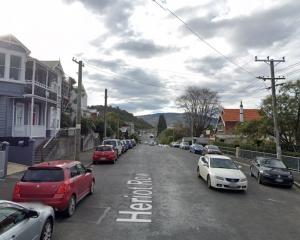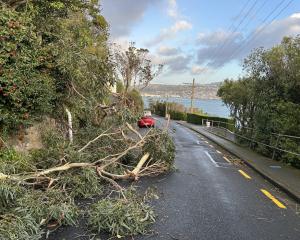The Dunedin City Council has a fight on its hands if it is to proceed with the sale of the Caledonian Bowling Club, the club's board chairwoman says.
The club intended to take the fight with the council as far as it could and would not go quietly, club board chairwoman Jan Tucker said yesterday.
The council called for submissions on a proposal to sell 223 Andersons Bay Rd - the site of the bowling club - in a public notice published in the Otago Daily Times on February 15.
However, club members became aware of the council's intent to sell the site after council economic development and property group manager Robert Clark included the Caledonian Bowling Club in a list of parcels of surplus land the council planned to sell to pay down $10 million in debt.
His comments were made during annual plan discussions on January 28.
The club is sited on council land which was sold by the Caledonian Society of Otago to the council in 1943.
Mrs Tucker said her position and that of the club's board was clear - ''We don't want to see this place go ... What I want from the whole thing is to try and reach an agreement that satisfies us.''
It was a site of historical importance, as Dunedin's oldest bowling club, but also of community importance, she said.
The club had sought legal advice and believed it had a case to renew a 20-year lease with the council under the Physical Welfare and Recreation Act 1937 and the Sport and Recreation New Zealand Act 2002.
Specifically, the club was still operational and the sale could not proceed if the club did not want to leave the site, she said.
She also believed any profits from the sale could not be used to pay down debt and even if it could, ''why should we be a party to paying off a debt we didn't incur?''
Council infrastructure and networks general manager Tony Avery said if the club ''make the claim, we will investigate it'', although the council had a ''long-standing approach'' of using profits from land sales to pay down debt.
The sale of the site was not a foregone conclusion and the purpose of the consultation process was to provide the council with the information necessary to proceed, he said.
When asked how much the council stood to gain from the sale, he said he could not discuss it as it was ''commercially sensitive''.
''If the council decides to proceed with the sale, the value of the property will be determined by the market,'' he said.
When asked if the sale was proposed because of the interest of a potential buyer, he said ''No'', although council had received ''some expressions of interest''.
If the sale was to proceed, ''there will be a public tender of some description'', he said.
The council's information pack regarding the sale of the site pointed to the club's declining membership as one of the reasons for its sale, a claim Mrs Tucker denied.
''It's stable,'' Mrs Tucker said.
''In 2008-09 we had 28 members. Now we have 32. Is that declining?''
It was a small club, but that was part of its appeal to members. The club had recently repainted the clubrooms and was always a good tenant, she said.
Before councillors made a decision, she urged them to visit the club.
''How can you sell something when you don't know what's here?'' she said.











